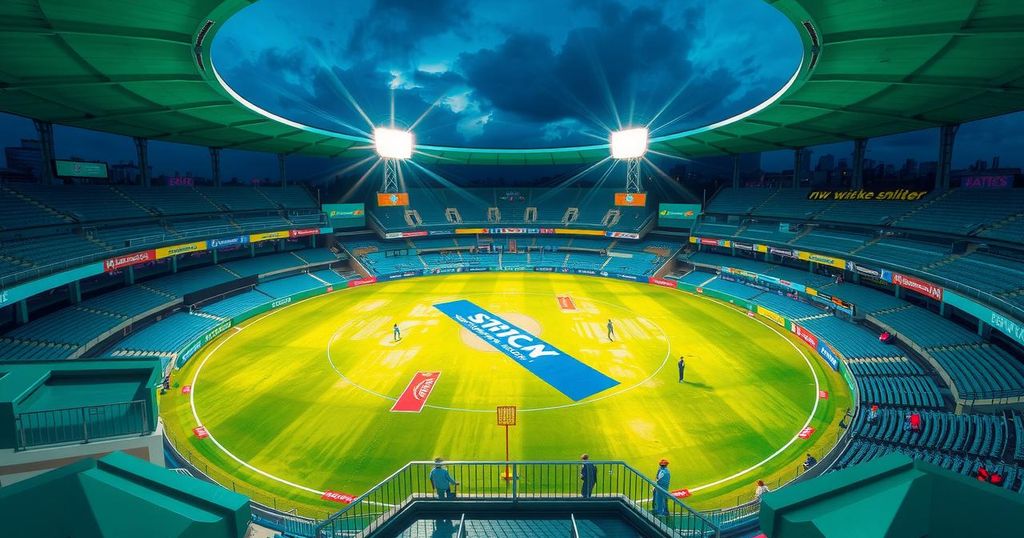Criticism surrounds the perceived ‘venue advantage’ held by India at the Champions Trophy, as they played all matches in Dubai. The PCB accepted a hybrid model prompted by financial incentives and logistical concerns after India’s refusal to play in Pakistan. Concerns have been voiced by players regarding scheduling fairness, while coach Gautam Gambhir dismissed critics as ‘perpetual cribbers.’
The discussion surrounding the Champions Trophy has primarily focused on the perceived ‘venue advantage’ enjoyed by the Indian team, who played all their games in Dubai. Despite criticism, the Pakistan Cricket Board (PCB) accepted the model due to essential logistics and financial considerations, particularly after the Board of Control for Cricket in India expressed unwillingness to send its team to Pakistan. The importance of this tournament for revitalizing international cricket in Pakistan drove PCB’s decision to accept a hybrid model, allowing India to play in Dubai while still hosting the event.
The Champions Trophy offered the PCB a significant financial incentive of approximately US$6 million in hosting fees from the ICC. The possibility of India boycotting the tournament posed a substantial risk, leading Pakistan to opt for the hybrid model to safeguard this revenue. This decision meant that Dubai became the chosen neutral venue, ensuring Pakistan retained the bulk of the ICC funds while managing logistical concerns.
Criticism regarding the scheduling of the tournament has come from various players, including South Africa’s David Miller, who highlighted the challenges imposed by the ICC’s decisions. “It’s only an hour and 40 minute flight, but the fact that we had to do that was not ideal,” lamented Miller about the semi-final logistics. Likewise, former England cricketer David Lloyd denounced the situation as embarrassing, stating, “It is just nonsense… the arrangements of playing are farcical.”
In response to ongoing concerns about unfair advantages, Indian head coach Gautam Gambhir branded the critics as “perpetual cribbers.” Indian bowler Mohammed Shami corroborated the benefits of playing in a familiar setting, acknowledging that knowing the local conditions contributed positively to their performance. The mixed reception of the tournament’s format highlights a complex intersection of competitive balance and financial imperatives in international cricket.
The Champions Trophy’s venue arrangements have sparked significant debate, with the Indian team’s presence in Dubai drawing allegations of an unfair advantage. The PCB’s acceptance of this model was primarily driven by financial considerations and logistical convenience, prioritizing the revival of international cricket in Pakistan over potential risks of tournament boycotts. As discussions on fairness continue, the complexities of scheduling and location reflect the challenges in balancing competitive equity and financial viability in international cricket.
Original Source: sports.ndtv.com




